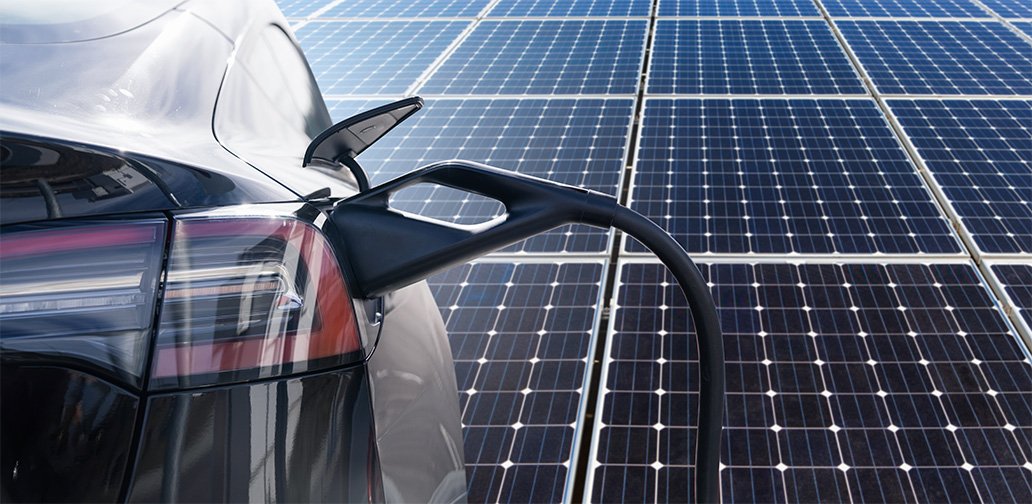
News
September 24, 2025
Solar-Electric Vehicle Combination Could Redefine Cities and Slash Emissions
Cities are at the forefront of the battle against climate change, being responsible for over 70% of the world’s CO2 emissions. A recent study from
**Solar-Electric Vehicle Combination Could Redefine Cities and Slash Emissions**
Cities, the bustling hubs of modern life, are also the epicenters of carbon emissions, contributing a staggering 70% of the world's total CO2 output. This places them squarely on the front lines of the fight against climate change. But a new study suggests that a powerful combination – solar energy and electric vehicles – could offer a revolutionary pathway towards cleaner, more sustainable urban environments.
The study highlights the potential for integrating solar-powered charging infrastructure throughout cities, allowing electric vehicles (EVs) to draw power directly from the sun. This approach bypasses the traditional electricity grid, which often relies on fossil fuels, significantly reducing the carbon footprint associated with EV charging. Imagine a city where rooftops are covered in solar panels, feeding clean energy into a network of charging stations, powering a fleet of electric cars, buses, and delivery vehicles. This vision is not just a pipe dream; it's a tangible possibility, according to the research.
The benefits extend beyond just reducing emissions. By decentralizing energy production and relying on a renewable source, cities can become more resilient to power outages and fluctuations in energy prices. Solar energy also offers a degree of energy independence, reducing reliance on external energy suppliers.
The study emphasizes the importance of strategic planning in implementing this solar-electric vehicle combination. Factors such as the optimal placement of solar panels and charging stations, the development of smart grid technologies, and the adoption of policies that incentivize EV ownership and solar energy adoption are crucial for success. Overcoming these challenges requires collaboration between city governments, energy providers, and the public.
Furthermore, the research points to the potential economic benefits of this transition. The solar and EV industries are rapidly growing, creating new jobs in manufacturing, installation, and maintenance. Investing in these technologies can stimulate economic growth and create a more sustainable and resilient urban economy. As cities grapple with the challenges of climate change, the integration of solar energy and electric vehicles offers a promising path towards a cleaner, healthier, and more sustainable future.
Cities, the bustling hubs of modern life, are also the epicenters of carbon emissions, contributing a staggering 70% of the world's total CO2 output. This places them squarely on the front lines of the fight against climate change. But a new study suggests that a powerful combination – solar energy and electric vehicles – could offer a revolutionary pathway towards cleaner, more sustainable urban environments.
The study highlights the potential for integrating solar-powered charging infrastructure throughout cities, allowing electric vehicles (EVs) to draw power directly from the sun. This approach bypasses the traditional electricity grid, which often relies on fossil fuels, significantly reducing the carbon footprint associated with EV charging. Imagine a city where rooftops are covered in solar panels, feeding clean energy into a network of charging stations, powering a fleet of electric cars, buses, and delivery vehicles. This vision is not just a pipe dream; it's a tangible possibility, according to the research.
The benefits extend beyond just reducing emissions. By decentralizing energy production and relying on a renewable source, cities can become more resilient to power outages and fluctuations in energy prices. Solar energy also offers a degree of energy independence, reducing reliance on external energy suppliers.
The study emphasizes the importance of strategic planning in implementing this solar-electric vehicle combination. Factors such as the optimal placement of solar panels and charging stations, the development of smart grid technologies, and the adoption of policies that incentivize EV ownership and solar energy adoption are crucial for success. Overcoming these challenges requires collaboration between city governments, energy providers, and the public.
Furthermore, the research points to the potential economic benefits of this transition. The solar and EV industries are rapidly growing, creating new jobs in manufacturing, installation, and maintenance. Investing in these technologies can stimulate economic growth and create a more sustainable and resilient urban economy. As cities grapple with the challenges of climate change, the integration of solar energy and electric vehicles offers a promising path towards a cleaner, healthier, and more sustainable future.
Category:
Technology